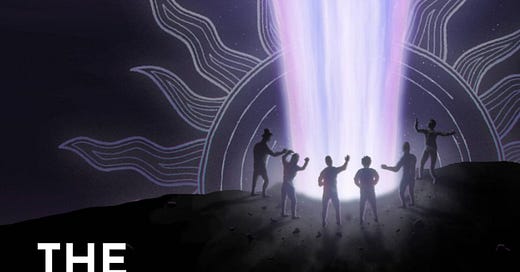
This Week…
In the Global North, we often view the energy transition through the lens of whether it is biophysically or financially possible - what we often don’t think about are the effects this transition - successful or not - will have on the stability of the environment and peace in the Global South. To delve more into this topic, I am joined today by environmental peacemaker and mediator Olivia Lazard to unpack the relationship between mineral deposits, conflict-vulnerable zones, and high biodiversity areas that together create additional risks for geopolitical and climate stability.
Olivia is a research fellow at Carnegie Europe where she focuses on the geopolitics of climate, the transition ushered by climate change, and the risks of conflict and fragility associated with climate change and environmental collapse. She has over twelve years of experience in the peacemaking sector at field and policy levels. In her fieldwork, her focus is to understand how globalization and the international political economy shaped patterns of violence and vulnerability patterns as well as formed new types of conflict systems that our international governance architecture has difficulty tackling with agility.
Much like Olivia’s research, this conversation covers a wide variety of topics and is jam-packed with information. Will we have to plunder the planet in order to save it? Will we be able to transition to a multi-polar world order somewhat peacefully? And what can we learn from mediators and peacemakers, like Olivia, as we move into a more materially constrained future - where the whole pie is smaller?
If you appreciate The Great Simplification podcast…
Be sure to leave a review on your preferred podcast platform! Leaving reviews helps the podcast grow, which helps spread awareness of our systemic situation from experts in ecology, energy, policy, economics, technology, and community building so that we can better understand - and respond to - the challenges of the coming decade.
The Great Simplification podcast is produced by The Institute for the Study of Energy and Our Future (ISEOF), a 501(c)(3) organization. We want to keep all content completely free to view globally and without ads. If you’d like to support ISEOF and it’s content via donation, please use the link below.





Thanks for the podcast Nate, I have a question somewhat related to the topic of the podcast. I'm currently working as a software developer for a group that's looking to build technologies to support a digitally enhanced democracy. However I've recently been concerned that the requisite hardware side of this tech stack may be endangered due to your analysis of the coming Great Simplification, as our digital infrastructure would never be possible without the mining, industrial heating, and transportation that goes into producing hardware, which all depends on depleting resources (oil, copper, etc.). Do you view this as a reason for concern around the prospects of digital democracy? Could this topic make it in your queue of Frankly topics?